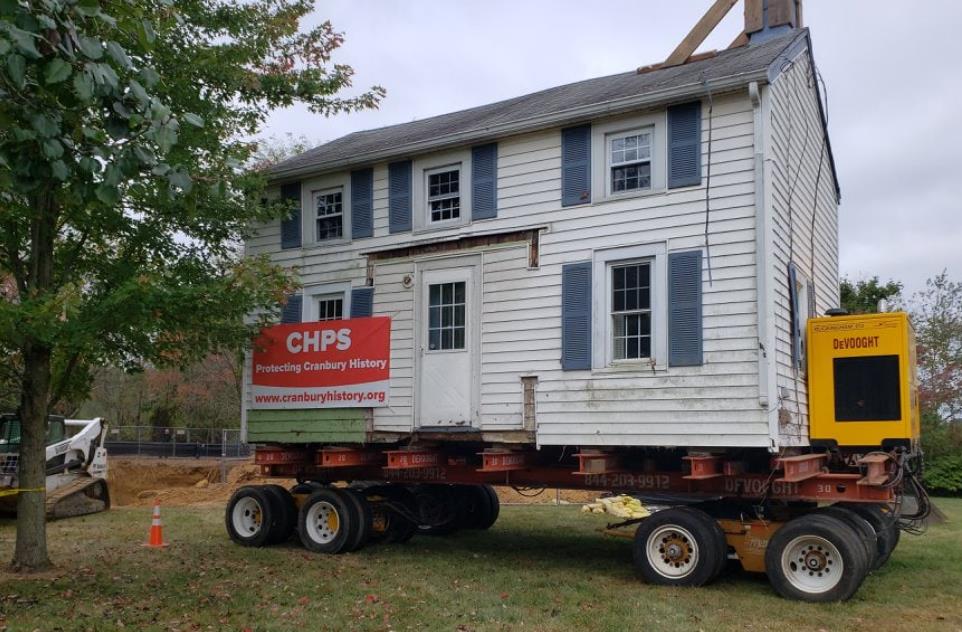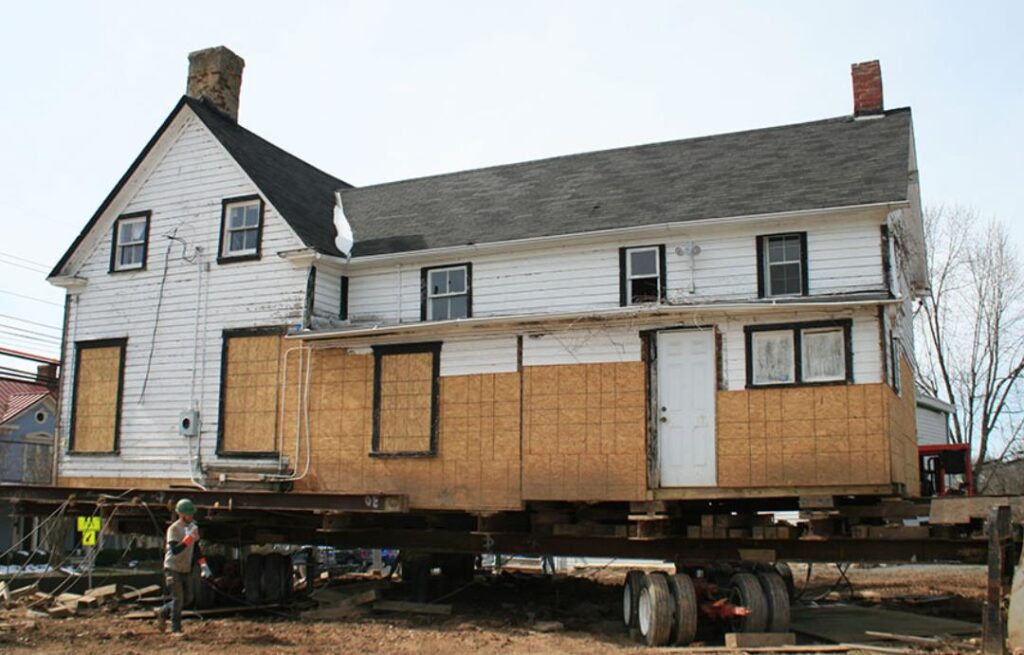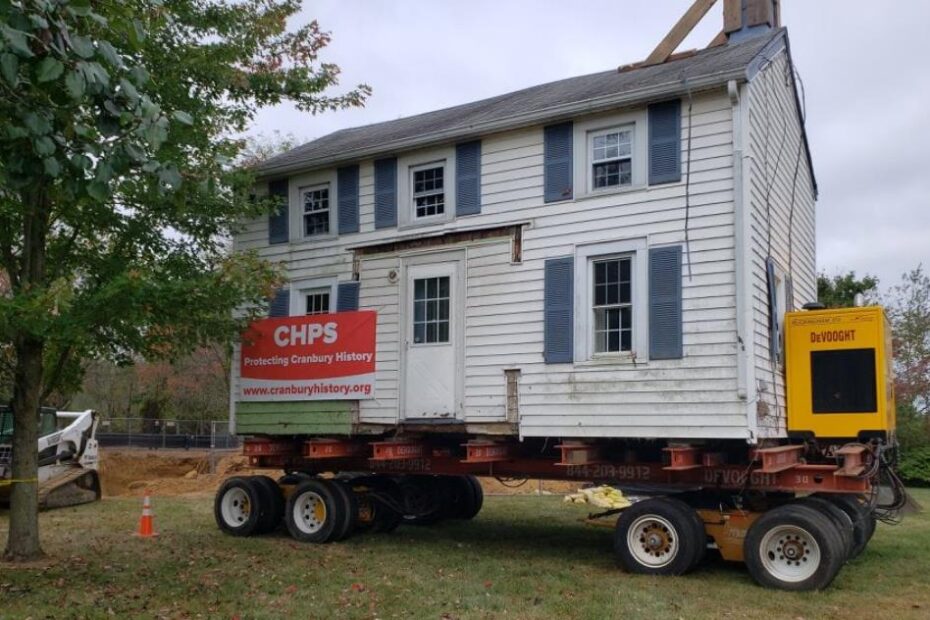This article will explain What Is A Home Mover Mortgage? Home mover mortgages are designed for individuals who already own a property and are looking to move to a new one. These mortgages offer the flexibility to either port your existing mortgage or opt for a new mortgage deal. This article dives deep into what a home mover mortgage is, its benefits, and how to choose the best option for your needs.
Key Takeaways
- Porting allows you to take your existing mortgage to your new home.
- Remortgaging offers the option to switch to a new mortgage deal.
- Loan-to-Value (LTV) ratio plays a crucial role in determining mortgage rates.
- Early Repayment Charges (ERCs) may apply if you switch before your current mortgage term ends.
- Consulting a mortgage broker can help you make an informed decision.
What Is A Home Mover Mortgage?
A Home Mover Mortgage is specifically designed for people who already own a property and are planning to move to a new one. You generally have two options: porting your existing mortgage or re-mortgaging to a new deal.

Porting means you can take your current mortgage deal to your new home, which can be beneficial if the mortgage rates have increased since you took your existing mortgage. On the other hand, remortgaging allows you to switch to a new mortgage deal, potentially saving you money in the long run.
Benefits of Porting Your Mortgage
Porting your mortgage offers a streamlined way to move your existing mortgage to a new property, and it comes with several advantages:

Consistency in Rates and Terms
One of the most compelling reasons to port a mortgage is the ability to maintain your current interest rate and terms. If you’ve locked in a favorable rate, porting allows you to carry that rate over to your new home, potentially saving you money.
Avoidance of Early Repayment Charges
Switching to a new mortgage often comes with early repayment charges, especially if you’re in the middle of a fixed-rate term. Porting your mortgage allows you to avoid these fees, making the move more cost-effective.
Simplified Approval Process
Since you’re staying with the same lender, the approval process for porting is usually simpler and faster. Your lender already has your financial history, which can expedite the application and approval stages.
Flexibility in Additional Borrowing
If the new property is more expensive and you need to borrow more, some lenders allow you to blend your current rate with the new rate for the additional amount. This blended rate can be more favorable than taking out a completely new mortgage.
Reduced Hassle and Paperwork
Porting your mortgage often involves less paperwork and fewer administrative tasks compared to applying for a new mortgage. This can make the moving process less stressful and more straightforward.
Why Remortgaging Could Be Better?
Opting for remortgaging instead of porting your existing mortgage can offer a range of benefits that might better suit your financial goals and lifestyle needs. Here’s why remortgaging could be a more advantageous option for you:

Access to Lower Interest Rates
The mortgage market is competitive, and lenders frequently offer promotional rates to attract new customers. Remortgaging can give you access to these lower rates, potentially saving you a significant amount over the life of the loan.
Diverse Mortgage Products
Different lenders offer a variety of mortgage products tailored to various needs. By remortgaging, you can take advantage of features like offset accounts, flexible payment options, or even cashback offers that your current lender may not provide.
Financial Incentives and Bonuses
Many lenders offer financial incentives to new customers, such as waived application fees or cashback after the mortgage closes. These incentives can offset some of the costs associated with moving and setting up a new mortgage.
Opportunity for Debt Consolidation
If you have other debts like credit cards or personal loans, remortgaging can provide an opportunity to consolidate these into a single, more manageable monthly payment. This can simplify your finances and potentially offer a lower overall interest rate.
Greater Financial Flexibility
Remortgaging can also offer greater financial flexibility. For instance, you might opt for a mortgage product that allows overpayments without penalties, enabling you to pay off your mortgage faster if you come into extra money.
Loan-to-Value (LTV) Ratio
The Loan-to-Value (LTV) ratio is a critical factor in determining your mortgage rates. A higher LTV usually results in higher interest rates, while a lower LTV can get you better deals.
If you’re porting your mortgage, ensure that the lender is comfortable with any change in the LTV ratio due to the new home’s value.
Fees Involved in Home Mover Mortgages
When opting for a home mover mortgage, be prepared for various fees like arrangement fees, valuation fees, and legal fees. Early Repayment Charges (ERCs) may also apply if you’re switching before your current mortgage term ends. These fees can add up, so it’s crucial to budget accordingly.
When to Apply for a Home Mover Mortgage?
Timing is a crucial factor when applying for a Home Mover Mortgage. Here are some key points to consider to ensure you’re making the most informed decision:

Early Planning
Start planning at least six months before you intend to move. This gives you ample time to assess your financial situation, improve your credit score if needed, and gather all the necessary documents.
Pre-Approval Stage
It’s advisable to get a mortgage pre-approval before even starting your property search. A pre-approval gives you a clear idea of how much you can borrow, making it easier to narrow down your property choices and strengthening your position as a serious buyer.
After Property Valuation
Once you’ve chosen a property, a valuation will be necessary. This is the perfect time to finalize your mortgage application, as the valuation will determine the loan-to-value ratio, affecting your interest rate and other mortgage terms.
Consider Market Conditions
The state of the property market can also influence when you should apply for a mortgage. In a buyer’s market, you may have the luxury of time, but in a seller’s market, acting quickly can be crucial.
Before the Sale of Your Current Home
If you’re selling your current home, aim to have your new mortgage in place before the sale is finalized. This ensures a smoother transition and can help you avoid the need for temporary housing or storage solutions.
Expert Advice
Consulting a mortgage broker can provide you with tailored advice, helping you choose between porting and remortgaging. They can also guide you through the fees involved and help you find the most cost-effective option for your situation.
Delving Deeper into Home Mover Mortgages

The Importance of Credit Score
Your credit score plays a pivotal role in securing a Home Mover Mortgage. A high credit score can unlock doors to lower interest rates and more favorable terms.
Lenders use this score to gauge your creditworthiness, which directly impacts the mortgage deals you’re offered. Therefore, before applying for a home mover mortgage, it’s wise to check your credit report for any discrepancies and take steps to improve your score.
In addition, maintaining a good credit score involves more than just paying your bills on time. Reducing your overall debt, not opening new credit accounts, and keeping old accounts active can also boost your score. A higher score can save you thousands over the life of your mortgage.
The Role of a Mortgage Broker
A mortgage broker can be your best ally in the journey of selecting a Home Mover Mortgage. They have access to a wide range of mortgage products and can negotiate terms on your behalf.
Their expertise can help you navigate the complexities of mortgage rates, fees, and terms, ensuring you get the best deal possible.
Moreover, a mortgage broker can save you time and effort by doing the legwork for you. They can compare multiple mortgage offers, taking into account your financial situation and needs.
This personalized service can be particularly beneficial if you have a complicated financial situation or specific mortgage requirements.
Fixed vs Variable Rates
When considering a Home Mover Mortgage, you’ll come across fixed and variable rate options. Fixed-rate mortgages offer the security of a constant interest rate for a set period, usually between 2 to 5 years. This can be advantageous for budgeting, as your monthly payments remain the same.
On the other hand, variable-rate mortgages have interest rates that can fluctuate based on market conditions. While this could mean lower payments if rates drop, it also exposes you to the risk of higher payments if rates rise. Therefore, your choice between fixed and variable rates should align with your risk tolerance and financial stability.
The Impact of Stamp Duty
Stamp duty is a tax you’ll need to consider when moving homes. The amount varies depending on the property’s price and location.
While it’s a one-time cost, it can significantly impact your overall moving budget. Some lenders offer mortgage deals that include stamp duty, but these usually come with higher interest rates.
It’s crucial to factor in stamp duty when calculating your budget for a Home Mover Mortgage. You can use online calculators to get an estimate or consult a financial advisor for precise figures. Being aware of this cost upfront can help you avoid any unpleasant surprises later.
The Application Process
The application process for a Home Mover Mortgage generally involves a series of steps, starting with an initial consultation with a lender or mortgage broker. You’ll need to provide various documents, such as proof of income, credit history, and details of your current mortgage if you’re porting.
After your documents are reviewed, the lender will assess your eligibility and offer you a mortgage deal. This is followed by a property valuation and legal checks.
Once everything is in order, you’ll receive a formal mortgage offer, and you can proceed to complete the property purchase.
How Does A Home Mover Mortgage Work?
A Home Mover Mortgage is designed for individuals who already own a home and are planning to move to another property. The process typically starts with an evaluation of your current mortgage terms and the equity you have in your existing home.

You have two primary options: porting your existing mortgage or applying for a new mortgage. Porting allows you to transfer your current mortgage to the new property, often retaining the same interest rates and terms.
If you choose to apply for a new mortgage, you’ll go through the standard application process, which includes credit checks, property valuation, and approval stages.
Your existing mortgage will usually be paid off with the sale proceeds of your old home, and any remaining funds can be used as a down payment for the new property.
What Are My Mortgage Options When Moving Home?
When moving home, you have several mortgage options to consider:

Porting Your Existing Mortgage
Porting is often the simplest option if you’re happy with your current mortgage terms. It allows you to transfer your existing mortgage to the new property, often without incurring early repayment charges.
Applying for a New Mortgage
If you’re not satisfied with your current mortgage or find a better deal elsewhere, you can apply for a new mortgage. This will involve a new application process, including credit checks and property valuation.
Bridging Loans
If there’s a gap between the sale of your old home and the purchase of the new one, a bridging loan can provide temporary financing. However, these often come with high-interest rates.
Joint Mortgages
If you’re moving in with a partner or friend, a joint mortgage allows you both to apply for the mortgage, potentially giving you access to better terms and higher loan amounts.
Can I Move House Without Changing My Mortgage?
Yes, you can move house without changing your mortgage through a process known as “porting.” Porting allows you to transfer your existing mortgage to a new property, retaining your current interest rate and terms.
This option is particularly beneficial if you have a competitive interest rate that you’d like to keep.

However, it’s essential to note that you’ll still need to go through a valuation process for the new property, and additional borrowing may be subject to current rates.
Also, some lenders may charge a porting fee, so it’s crucial to read the fine print and consult with your lender about any associated costs.
What Are The Benefits Of Staying With My Current Lender?

Simplified Process
Staying with your current lender often simplifies the mortgage process. Since your lender already has your financial history and mortgage records, the approval process can be faster and less cumbersome.
No Early Repayment Charges
If you’re in the middle of a fixed-term mortgage, switching lenders could result in early repayment charges. Staying with your current lender usually allows you to avoid these fees, especially if you’re porting your mortgage.
Familiarity
There’s a level of comfort and trust that comes with sticking to a lender you’ve already done business with. You’re familiar with their customer service, online systems, and communication methods, which can make the entire process smoother.
Potential for Better Deals
Some lenders offer loyalty bonuses or better terms to existing customers. While this isn’t a guarantee, it’s worth checking with your current lender to see if they offer any incentives for staying.
What Are The Benefits Of Switching To A New Lender?
Switching to a new lender can offer several advantages, especially if your current mortgage terms are less than ideal. Here are some benefits to consider:

Competitive Interest Rates
New lenders may offer more competitive interest rates than your current lender, which could result in significant savings over the life of the mortgage.
Better Mortgage Products
Different lenders offer various mortgage products tailored to specific needs. Switching lenders could give you access to features like flexible payment options, offset accounts, or lower fees that your current lender doesn’t offer.
Financial Incentives
Some lenders offer financial incentives like cashback, waived fees, or lower initial rates to attract new customers. These incentives can make the switch financially appealing.
Improved Customer Service
If you’re dissatisfied with the customer service at your current lender, switching could improve your overall mortgage experience.
When Should I Apply For A Mortgage If I’m Moving?
Timing is crucial when applying for a mortgage, especially if you’re planning to move. Here are some guidelines:
Before Listing Your Current Home
It’s wise to get a mortgage pre-approval before listing your current home for sale. This gives you an idea of how much you can afford and shows sellers that you are a serious buyer.
After Financial Assessment
Before applying for a new mortgage, assess your financial situation. Make sure your credit score is in good shape and that you have all the necessary documents ready.
Consider the Property Market
The state of the property market can influence when it’s best to apply for a mortgage. In a buyer’s market, you may have more time to shop around for mortgages, but in a seller’s market, you may need to act more quickly.
Gap Between Selling and Buying
If there’s going to be a gap between selling your current home and buying a new one, you might consider a bridging loan. However, it’s essential to apply for this well in advance to ensure it’s ready when you need it.
Conclusion
Choosing the right Home Mover Mortgage can be a complex decision, involving various factors like porting, remortgaging, and associated fees. Consulting a mortgage broker can offer invaluable insights, ensuring you make an informed choice that aligns with your financial goals.
Whether you opt for porting or remortgaging, understanding the nuances of credit scores, consulting a mortgage broker, and being aware of additional costs like stamp duty can make a world of difference. Armed with this knowledge, you’re better positioned to make an informed decision that aligns with your financial goals.
Frequently Asked Questions
What Is the Minimum Size for a Flat to Get a Mortgage?
The minimum size for a flat to qualify for a mortgage can vary depending on the lender’s criteria and the country’s property regulations. Some lenders may have specific square footage requirements, while others may be more flexible. It’s crucial to consult with multiple lenders to understand their specific requirements and how they may apply to your situation.
Can I Buy a House and Rent It to a Family Member?
Yes, you can buy a house and rent it to a family member, but this may affect the type of mortgage you can get. Some lenders have specific “family buy-to-let” mortgages for this purpose. However, the rent you charge must meet the lender’s criteria, and you may face additional tax implications.
Can I Sell Part of My Land if I Have a Mortgage?
Selling part of your land while you have a mortgage can be complicated. Most mortgage agreements have clauses that prevent you from altering the property’s structure or selling parts of it without the lender’s consent. You’ll need to consult your mortgage agreement and speak with your lender for specific guidance.
Can a Parent Be a Guarantor on a Mortgage?
Yes, parents can act as guarantors for their child’s mortgage. This can be particularly helpful for first-time buyers or those without a substantial credit history. However, being a guarantor involves significant financial responsibility, as you’ll be liable for the mortgage payments if your child defaults.

Muhammad Talha Naeem is a seasoned finance professional with a wealth of practical experience in various niches of the financial world. With a career spanning over a decade, Talha has consistently demonstrated his expertise in navigating the complexities of finance, making him a trusted and reliable figure in the industry.









